CHICAGO VISIONS AND REVISIONS
Edited by Carlo Rotella, Bill Savage,
Carl Smith, and Robert B. Stepto
ALSO IN THE SERIES:
The Third City: Chicago and American Urbanism
by Larry Bennett
The Wagon and Other Stories from the City
by Martin Preib
Soldier Field: A Stadium and Its City
by Liam T. A. Ford
Barrio: Photographs from Chicagos Pilsen and Little Village
by Paul DAmato
The Plan of Chicago: Daniel Burnham and the Remaking of the American City
by Carl Smith
You Were Never in CHICAGO
NEIL STEINBERG
The University of Chicago Press
CHICAGO AND LONDON
NEIL STEINBERG is a columnist at the Chicago Sun-Times, where he has been on staff since 1987. He is the author of seven books, including Drunkard: A Hard-Drinking Life and Hatless Jack: The President, the Fedora, and the History of American Style.
The University of Chicago Press, Chicago 60637
The University of Chicago Press, Ltd., London
2013 by Neil Steinberg
All rights reserved. Published 2013.
Printed in the United States of America
22 21 20 19 18 17 16 15 14 13 1 2 3 4 5
ISBN-13: 978-0-226-77205-9 (cloth)
ISBN-13: 978-0-226-92427-4 (e-book)
ISBN-10: 0-226-77205-5 (cloth)
ISBN-10: 0-226-92427-0 (e-book)
Library of Congress Cataloging-in-Publication Data
Steinberg, Neil.
You were never in Chicago / Neil Steinberg.
pages. cm. (Chicago visions and revisions)
ISBN-13: 978-0-226-77205-9 (cloth : alk. paper)
ISBN-10: 0-226-77205-5 (cloth : alk. paper)
ISBN-10: 0-226-92427-0 (e-book) 1. Steinberg, Neil. 2. Chicago (Ill.)Miscellanea. I. Title. II. Series: Chicago visions + revisions.
PS3569.T37548Z46 2013
818.5403dc23
[B]
2012019395
 This paper meets the requirements of ANSI/NISO Z39.481992 (Permanence of Paper).
This paper meets the requirements of ANSI/NISO Z39.481992 (Permanence of Paper).
FOR EDIE
Because being here is much
and because all this thats here
so fleetingly
seems to require us and
strangely concerns us
us, the most fleeting of all.
RAINER MARIA RILKE
CONTENTS
Manus manum lavat
A baton twirls, its white rubber tips blurring with speed. The dimpled chrome shaft catches sunlight, flashes, sparkling as it is tossed high into the air, pauses, falls, is caught, spun, flipped around the back, then smoothly grabbed and sent spinning up again.
The baton twirler is not part of a marching band, not on some suburban high school football field, but walking down the center of Broadway on a beautiful summer afternoon in Chicago at the start of a new century. Music throbs; the crowd jamming the sidewalk waves and cheers.
This is the last Sunday in June and the last day we are living in the city of Chicago for the foreseeable future. Maybe forever. Tomorrow the big red truck from Midwest Movers will come and burly men will muscle everything we own down into the street and out to the suburbs.
If I didnt take my wifes lead, I sheepishly explain to friends who ask how we can leave the city, Id still be a single guy living in a one-bedroom apartment in Oak Park.
Today she takes my lead. Though there is much to be done, many possessions still lurking deep within closets, stragglers from the herd, waiting to be flushed from their hiding places and penned in brown cardboard boxes, my wife agrees to take a break for a few minutes and walk over to the thirty-first annual Gay Pride Parade. One last look as residents living a block off the route. To soak in the color and excitement we are abandoning by moving away. Of course well be back to watch the parade again, I tell myself, certainly well be back, though as tourists, visitors in for a few hours from suburbia.
The festive throng is enormous, filling the space between building and curb. Muscular men, their shirts stripped off, displaying tribal tattoos of Tibetan mandalas, Greek phrases, bands of thorns, HIV +. Women in cutoffs and bikini tops. Kids with painted faces and balloons tied to their strollers.
We wander the street. Our own boys, three and four, have been deposited at their grandparents house, to get them out of the way during the chaos of the move. Heading up Broadway, we approach the four-story brick Nettelhorst Elementary School, the main reason were leaving.
Why not just send them to kindergarten? I had implored my wife. Give it a try. How bad could it be? Edie replied by calmly pulling the stats: by second grade, 92 percent of the Nettelhorst kids have reading scores below state average. Thats how bad.
Music whumps from passing floats. Honorees in convertibles roll slowly by, beaming and waving. The year before, I took our older son Ross, then three, to the parade, by accident. I was heading to the hardware store to buy a plunger and brought him along for company, forgetting that a quarter million people had gathered at the end of our block.
Undeterredand not realizing that the hardware store would be closed for the paradeI swept him up in my arms and we pushed forward, joining the onlookers. Ross gazed around at the mustachioed leather boys, the bodybuilders in tiny Speedo bathing suits, the harlequins on stilts, the flamboyant drag queens wobbling under giant feathered Mardi Gras headpieces, the bannered vintage convertibles with that years crop of dignitaries perched atop back seats, where they could be better seen by the crowd. His eyes widened, he pointed a quivering finger and said, Daddy, those men... theyre not wearing seatbelts! It isnt safe!
I loved that. My son was so worked up by the fact that people riding in cars werent wearing seatbeltsthe life-or-death importance of which had been drummed into himhe wouldnt let the matter drop until we reported the emergency to a cop holding back the onlookers, who shot us a single glance of puzzled annoyance before returning to his duties.
The rest of the spectacle didnt strike Ross as unusual.
The Chicago Pride Parade began in 1970 as a protest march to commemorate the first anniversary of the riot of gay patrons at New Yorks Stonewall Inn. Marching in the parade in its early years was a radical, risky act, a bold declaration of Were here too! A flaunting in the street of something many feared to tell their friends, coworkers, even their families. You could lose your job.
No more. Thirty years later automobile manufacturers have floats. Banks have floats. The Chicago Transit Authority has a float, with employees playing in a band, mimicking the Partridge Family TV show. Former mayor Jane Byrne became the first major politician to march in the parade in 1983 and others followed, including Richard M. Daley, the first sitting mayor in the parade, which eventually approached the level of the St. Patricks Day Parade as a political requirement. One-time gubernatorial candidate Dawn Clark Netsch appears every year, in a convertible decorated with a banner declaring, IM NOT RUNNING FOR ANYTHING.
And Cook County treasurer Maria Pappas, twirling a baton.
Catching sight of her brings me unexpected joy. There she is, tall, trim, dark-haired, fetching in a spaghetti-strap tank top, twirling away. I feel a burst of raw happiness so unusual that I instantly begin to pick it apart and analyze it.
Her baton is not news. The former majorette has twirled in seven out of the last eight pride parades. Ive seen Pappas do it before. But for some reason, her act never struck me the way it does now.
Maybe because of the lovely summer day. Maybe because of nostalgiawere leaving the city and decamping to the suburbs tomorrow. Not just to the suburbs, but to Northbrook, a particularly suburban suburb, with neither the moneyed grace of Wilmette or Winnetka, nor the blue-collar pride of Niles or Des Plaines. A neutered nowhere, arrived at through a tactical retreat inspired by the crummy city schools and, to be honest, the city itself. The boys need to go through three locked doorsour second floor apartment door plus two heavy outer security doorsto reach the street, to descend to the muddy, dog-piss-murdered patch of grass between the sidewalk and the curb, there to play for a few closely watched minutes beneath the hulking, black-barked, hacked-up trees outside our place on Pine Grove Avenue, sidestepping bottle caps, petrified dog turds, and broken glass. They cant go alone. They have to get an adult to go with them. So the boys tend not to bother going outside; its easier just to ride their Big Wheels around the dining room table. Around and around and around. Like rats in a cage. Is that any way to grow up?
Next page
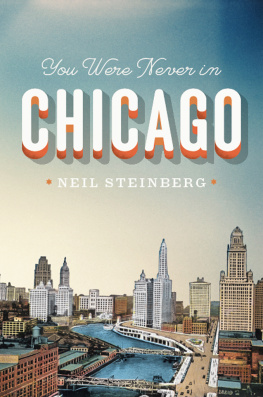
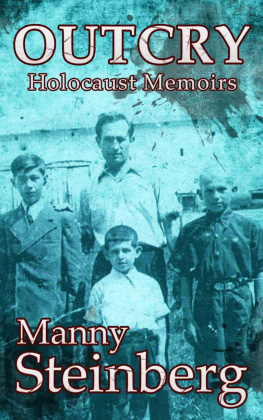

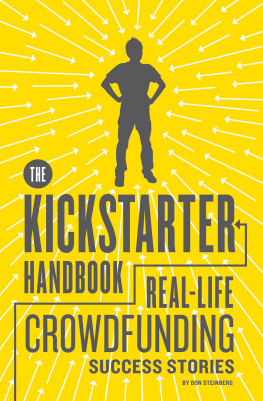


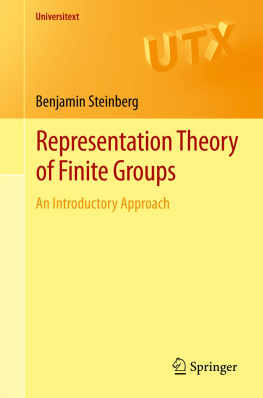
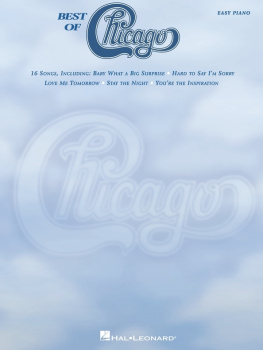
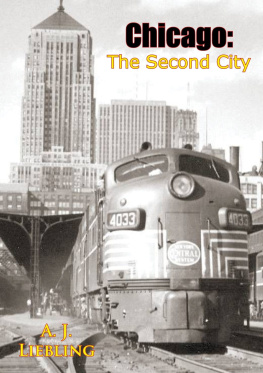

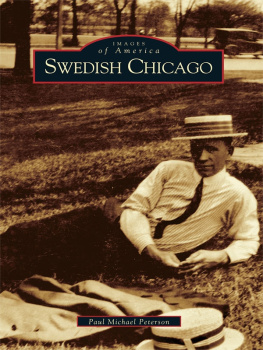
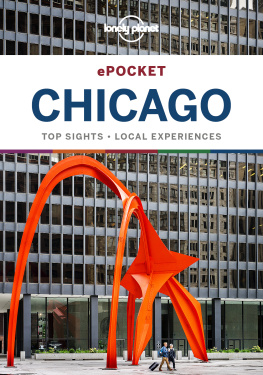

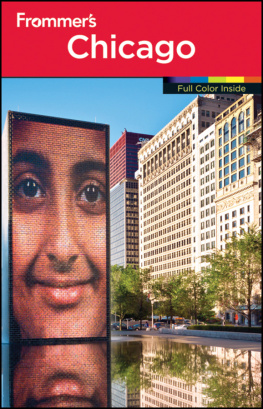

 This paper meets the requirements of ANSI/NISO Z39.481992 (Permanence of Paper).
This paper meets the requirements of ANSI/NISO Z39.481992 (Permanence of Paper).